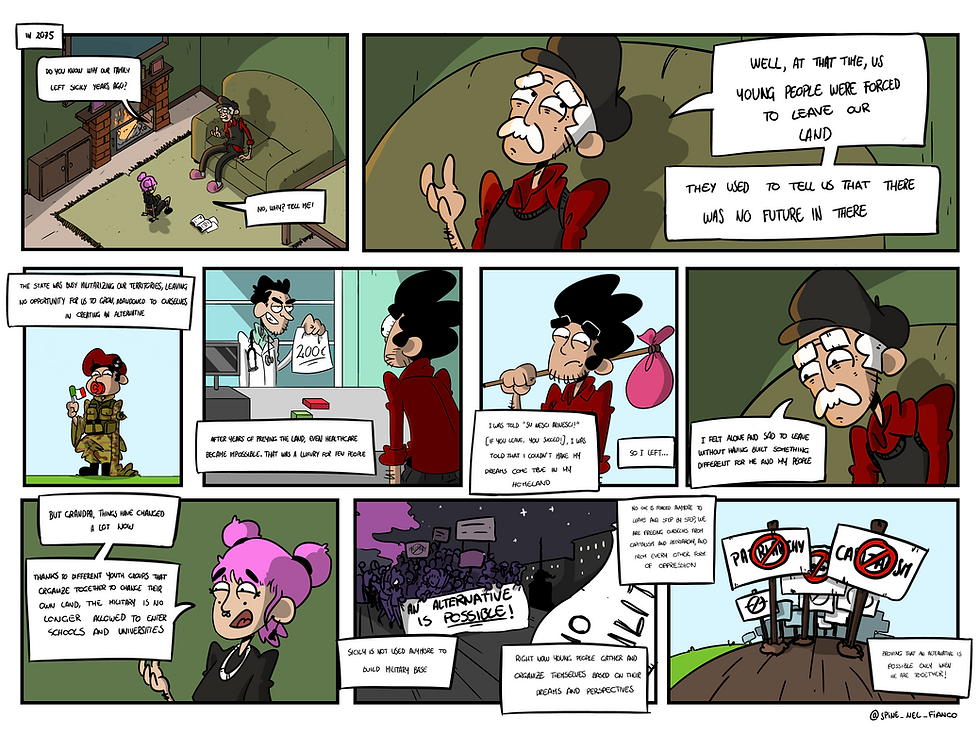From Balochistan to the whole world - Forging unity among the oppressed
- Lêgerîn

- Mar 25, 2024
- 3 min read
Updated: Aug 27, 2024

Written by Abdullah Abbas, Human Rights Council of Balochistan
From November 3-5, the «Youth Writing History» international conference in Paris, organised by activists from the Kurdish movement, marked a significant gathering of activists from diverse backgrounds worldwide. As a representative of the Human Rights Council of Balochistan, an organisation focusing on human rights violations in Balochistan by the Pakistan Army, I was privileged to witness the empowering presence of activists championing various causes.
Balochistan, once an independent nation, bears the scars of colonisation by British forces, leading to its division and occupation by Pakistan, Iran, and Afghanistan. The roots of this plight trace back to the British Raj’s 1838 attack on Balochistan, which resulted in the colonisation of the region two decades before the Indian Subcontinent’s occupation. Subsequent events, such as the division of Balochistan in 1872 and the creation of the Durand Line in 1893, illustrate the complex history that paved the way for the present-day challenges faced by the Baloch people.
Post-World War II, Balochistan declared independence alongside India and Pakistan, only to face occupation by Pakistan in 1948, orchestrated to protect Western interests in the region. This marked the beginning of Balochistan’s struggle as a colony, met with steadfast resistance from its people, resulting in five uprisings, all brutally suppressed. The year 2000 saw another uprising, the longest one so far. Pakistan, collaborating with China to alter Balochistan’s demography for the construction of a port, fueled the movement, leading to the longest-standing resistance that persists to this day. The subsequent China-Pakistan Economic Corridor (CPEC) project, initiated in 2003, has faced continuous opposition, with the port and other projects remaining non-functional two decades later.

As the resistance persisted, the Pakistan Army implemented a ruthless strategy, resorting to enforced disappearances and extrajudicial killings of activists and their families critical of the Pakistan occupation. Over the last five years alone, more than 5000 people have been forcibly disappeared, and at least 3000 have been extrajudicially killed while the military tightens its grip on every aspect of civilian life.
Balochistan under Iranian occupation faces similar challenges, with the Mullah regime suppressing political parties, killing activists, and creating a political vacuum—the region’s struggle exacerbated by economic deprivation and a concerted effort to Iranianize the area. The campaign to Iranianise involves distorting the history of Balochs, Kurds, and other ethnicities under Iranian rule, negating their unique histories, cultures, languages, and diversity. Instead, the populace is told they are part of a larger Persian nation, with authorities even prohibiting the use of Balochi, Kurdi, and other local names. Despite these challenges, resistance persists.
In August 2022, nearly a month prior to the tragic murder of Jina Amini, a 15-year-old Baloch girl fell victim to sexual assault by a police officer in Chahbahar. Public outrage ensued upon disclosure of the incident, culminating in protests that eventually escalated into the Zahedan Massacre.
Contextualising the Jin Jiyan Azadi movement is crucial. Following Jina Amini’s brutal murder, this movement gained momentum in Iran, with the people in Balochistan simultaneously protesting against the rape by Iranian Revolutionary Guards. Alongside other parts of Iran and Kurdistan, the Iranian forces cracked down on peaceful protestors, killing hundreds and detaining more. Today, the Baloch and Kurd communities comprise the largest number of people killed, executed, and detained during the aftermath of Jina’s murder.
Despite the magnitude of violence and suppression in Balochistan, international awareness remains minimal, with media outlets often terming it an «information black hole.» The lack of attention from international human rights organisations has allowed Pakistan and Iran to act with impunity, perpetrating atrocities without consequence.
The «Youth Writing History» conference served as a pivotal platform for global activists to unite, share their struggles, and explore avenues for collaboration. Despite the diverse nature of our challenges, the foundational pattern of oppression is the same – rooted in occupation and plunder. It underscored the need for a collective effort, transcending geographic boundaries, to confront a common adversary – a system rooted in occupation and exploitation.
It became evident that our oppressors are united through different entities while we, the oppressed, remain fragmented. However, our strength lies in the unifying factors of pain, comradeship, and the pursuit of justice and truth. We face a choice: to endure suffering in isolation or to come together and form a united front against oppression. Such unity sends a powerful message to our oppressors – that we stand together, ready to resist collectively, and touching one invites resistance from all.
No matter their power, a bond forged in shared struggle is far stronger than a unity based on greed and exploitation.
Read issue 13 here.








Comments